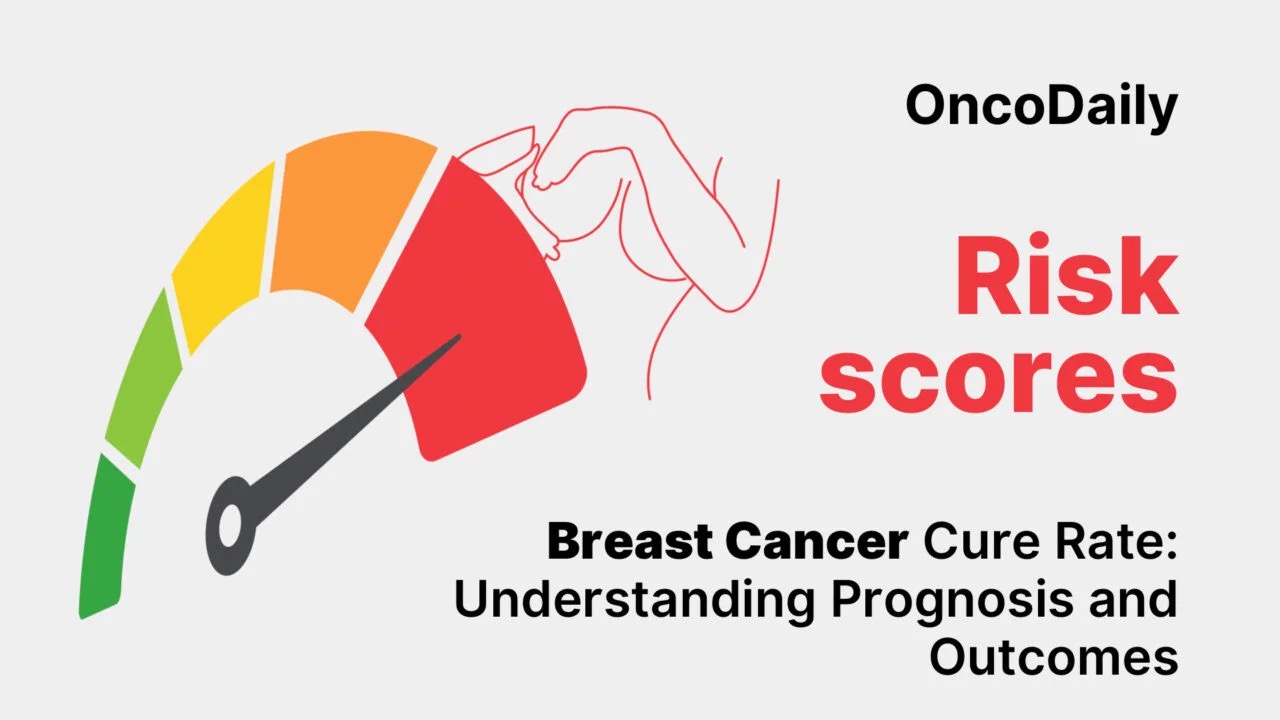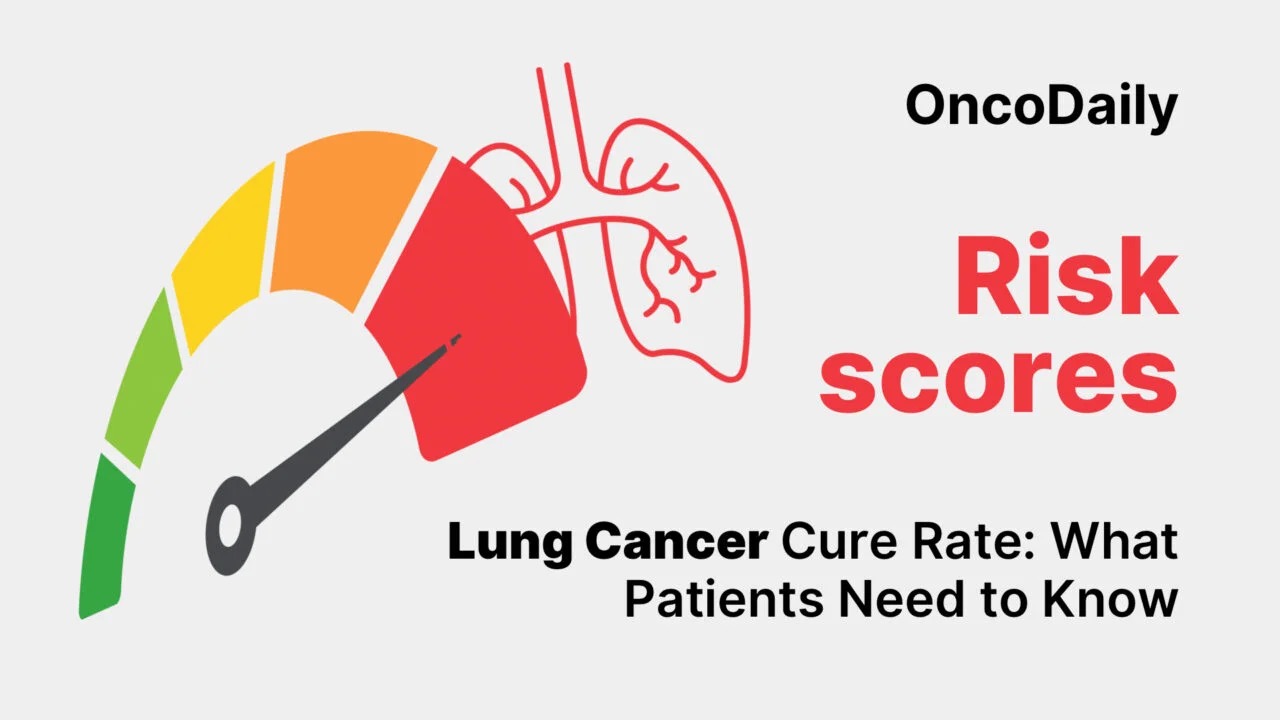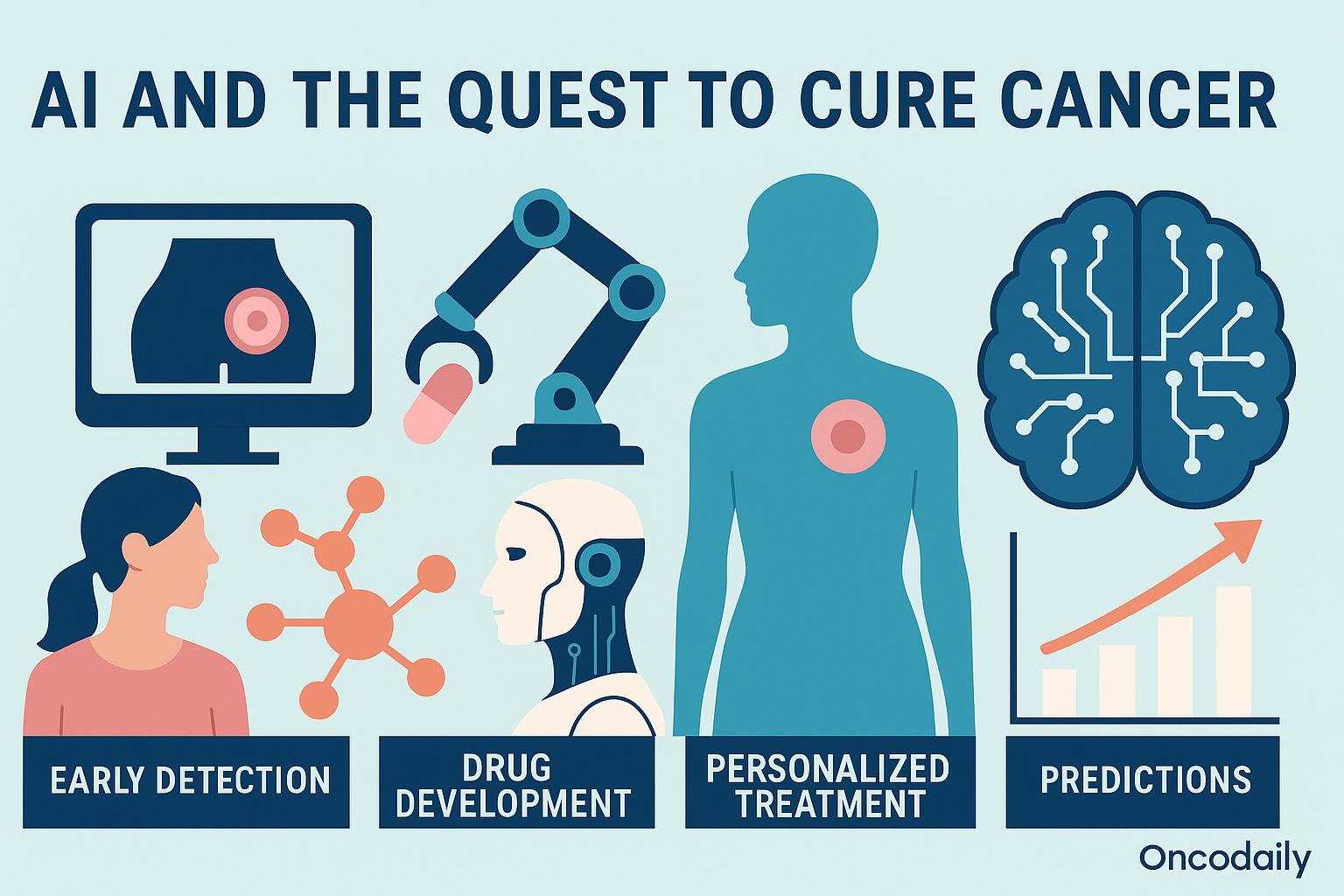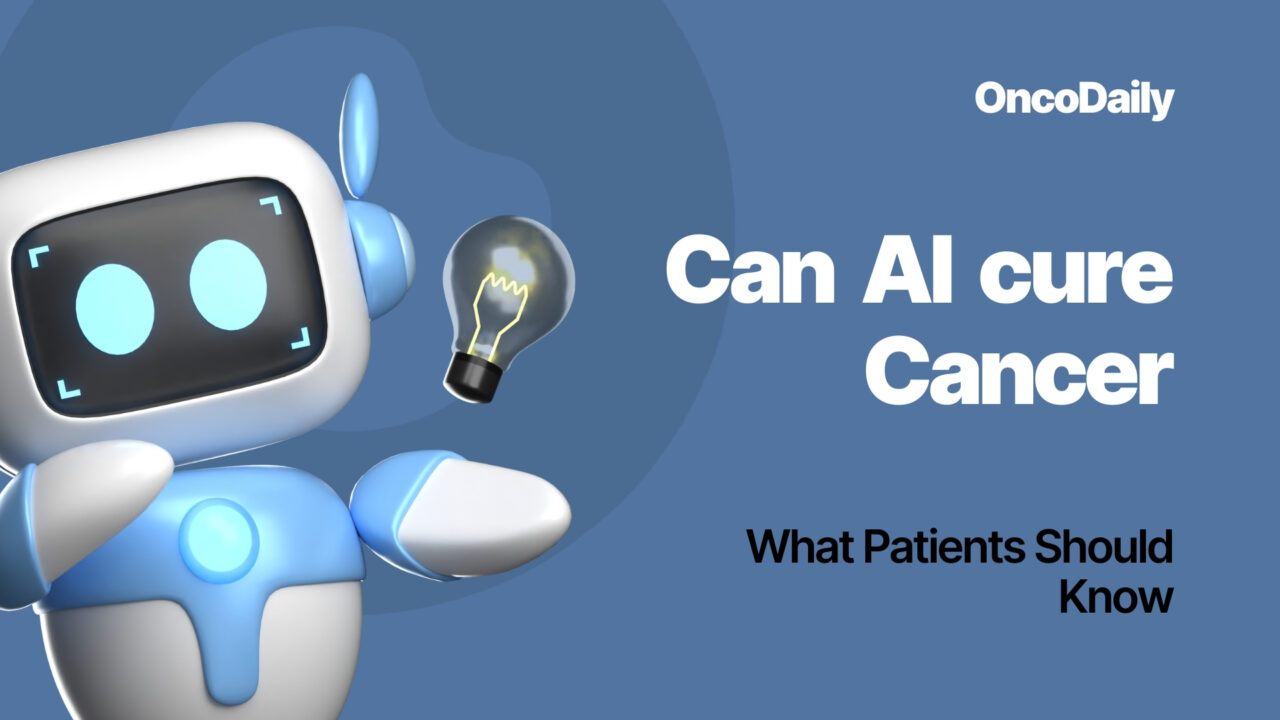Cancer is one of the most challenging diseases in medicine, not only because of how common it is, but also because of how complex it can be. For many patients, hearing about new technologies like artificial intelligence (AI) sparks hope. A common question that follows is: Can AI cure cancer?
The honest answer is no. AI cannot cure cancer. Cancer is not a single disease, and curing it requires more than technology alone. But what AI can do is help doctors detect cancers earlier, design more effective treatments, speed up drug discovery, and provide patients with better care. Instead of being a cure by itself, AI functions as a powerful partner to doctors, researchers, and patients in the fight against cancer.
Why Curing Cancer Is So Difficult
To understand why AI cannot simply “cure” cancer, it is important to first understand the disease. Cancer is not one illness but more than 200 distinct diseases, each with its own biology. Even within one type of cancer, such as breast or lung cancer, every patient’s tumor may carry different genetic mutations, respond differently to treatments, and grow at a different pace.
For example, breast cancer can be classified into subtypes like HER2-positive, hormone receptor-positive, or triple-negative, each requiring a unique treatment approach (Harbeck & Gnant, 2017, The Lancet). Similarly, lung cancer can be driven by mutations such as EGFR or ALK, which respond to targeted therapies but resist others (Hirsch et al., 2017, The Lancet).
This diversity explains why there is no single “cure for cancer.” Treatments such as surgery, chemotherapy, radiation, immunotherapy, and targeted therapy are often combined to control or eliminate tumors. Outcomes depend heavily on the stage at diagnosis and the biology of the cancer.
What AI Actually Does In Cancer Care
Artificial intelligence refers to computer systems that can process massive amounts of data, learn patterns, and make predictions. In healthcare, this means analyzing medical images, genetic profiles, pathology slides, and clinical records to provide insights that would take humans much longer to uncover.
AI does not cure cancer directly. Instead, it helps at several critical points along the cancer journey:
Detection and diagnosis: AI analyzes scans and pathology slides to identify cancers earlier and more accurately.
Treatment decisions: AI supports doctors by comparing patient data with global guidelines and trial evidence to suggest personalized treatments.
Drug discovery: AI accelerates the identification of new drug targets and molecules that may fight cancer.
Treatment planning: In radiation oncology and surgery, AI improves precision and safety.
Patient support: AI chatbots and digital tools help patients manage treatment schedules, side effects, and follow-up care.
Each of these steps contributes to better outcomes, even though AI itself is not the cure.

Read About Breast Cancer Cure Rate on OncoDaily
AI In Cancer Detection: Catching It Early
The most powerful way to improve survival is to detect cancer early. Early-stage cancers are often curable, while advanced cancers are harder to control. AI has shown great promise in improving early detection.
One of the most widely studied areas is AI in breast cancer detection. A study published in The Lancet Digital Health (McKinney et al., 2020) demonstrated that AI could interpret mammograms with accuracy comparable to radiologists, in some cases reducing false positives and false negatives. In Sweden, a large clinical trial tested AI in population-wide breast cancer screening and found that it reduced radiologists’ workload by over 40% without missing cancers (Salim et al., 2022).
Similar advances are happening in other cancers. For example, in lung cancer, AI systems can analyze low-dose CT scans to detect tiny nodules that could represent early tumors (Ardila et al., 2019, Nature Medicine). In colon cancer, AI-assisted colonoscopy improves the detection of small polyps that might develop into cancer later (Repici et al., 2020, Gastroenterology). In skin cancer, algorithms trained on millions of images can distinguish between benign moles and malignant melanomas with accuracy similar to dermatologists (Esteva et al., 2017, Nature).
For patients, this means a higher chance of cancers being caught early, when treatment can be less aggressive and outcomes are far better.

Read About Lung Cancer Cure Rate on OncoDaily
AI In Treatment Decision-Making
Once cancer is diagnosed, the next step is deciding how to treat it. Traditionally, treatment decisions are made by a team of specialists in what is called a tumor board. They review the patient’s scans, test results, and medical history to design a plan. AI is now being used as a decision-support tool in these meetings.
One example is IBM Watson for Oncology, which has been tested in countries including China and India. In some studies, Watson’s treatment recommendations were concordant with expert oncologists in up to 93% of breast cancer cases (Zhou et al., 2019, JCO Clinical Cancer Informatics). Although Watson has faced criticism for inconsistent results, it demonstrates how AI can scan thousands of clinical trials, guidelines, and published studies to bring evidence to the table.
AI also helps with precision oncology, where treatment is tailored to the genetic mutations in a patient’s tumor. By analyzing genomic sequencing data, AI can suggest which targeted therapies or immunotherapies are most likely to work. This is particularly important as the number of cancer drugs grows rapidly, making it difficult for doctors to keep up with every new approval.
AI In Drug Discovery: Speeding Up The Pipeline
Developing new cancer drugs has always been a slow and expensive process, often taking more than a decade and billions of dollars. AI is now being used to speed up this process. Algorithms can predict how certain molecules will interact with cancer cells, identify promising drug targets, and even suggest repurposing existing drugs for new cancers.
In 2021, researchers published a landmark study in Nature Biotechnology showing that AI identified potent inhibitors for a cancer-related protein in just 46 days — a process that would normally take years (Zhavoronkov et al., 2021). Pharmaceutical companies are increasingly investing in AI platforms to shorten timelines and lower costs in drug development.
For patients, this means that new treatments could reach clinical trials and approval faster, potentially expanding the range of options available for hard-to-treat cancers.
AI In Radiation And Surgery
Radiation therapy is a mainstay of cancer treatment, used in over 50% of patients. Designing a radiation plan requires carefully targeting the tumor while sparing healthy tissue. Traditionally, this process takes hours of manual work by radiation oncologists and physicists. AI now helps automate tumor contouring and dose planning.
A review in Radiotherapy and Oncology (Thompson et al., 2022) highlighted how AI algorithms speed up contouring, reduce variability between clinicians, and allow more personalized treatment. This not only saves time but also ensures safer, more effective therapy.
In surgery, AI-powered robotic systems assist surgeons in removing tumors with greater precision. While not a cure in itself, these tools improve surgical accuracy, reduce complications, and may help patients recover faster.
AI In Patient Support And Survivorship
Beyond diagnosis and treatment, AI supports patients in managing the daily challenges of cancer care. Chatbots and digital assistants can remind patients to take medication, report side effects, and connect them to healthcare teams when needed. In low-resource areas, telemedicine platforms powered by AI extend oncology expertise to patients who would otherwise lack access.
AI is also being tested to monitor patient-reported outcomes, such as fatigue, nausea, or depression during treatment. By flagging concerning symptoms early, AI systems can help clinicians intervene before complications worsen, improving quality of life.
What AI Cannot Do
Despite the excitement, patients should understand the limits of AI. It is not a cure and cannot replace oncologists. AI is only as good as the data it learns from, and if that data is incomplete or biased, errors can occur. Algorithms trained mainly on Western populations, for instance, may not perform as well in African or Asian populations. Regulatory approval and real-world validation are still ongoing in many countries, and integration into healthcare systems takes time.
Human judgment remains irreplaceable. Doctors consider not only medical test results but also personal factors such as patient preferences, social support, and quality-of-life goals. AI cannot capture the human side of care that is central to oncology.

The Future Of AI In Cancer
The most promising direction is multimodal AI, which combines imaging, genomics, pathology, and clinical data into a single model. Researchers are working on “digital twins” of patients — virtual models that simulate how a tumor might respond to different treatments, allowing oncologists to choose the best approach before starting therapy.
Federated learning, another innovation, allows AI to be trained on data from multiple hospitals without sharing patient information. This improves accuracy while protecting privacy. These approaches suggest that AI will become more reliable, more ethical, and more globally applicable in the coming years.
Conclusion
So, can AI cure cancer? The answer is no. But AI is transforming how cancer is detected, diagnosed, and treated. It allows cancers to be caught earlier, treatments to be better tailored, and new drugs to be developed more quickly. For patients, this means improved chances of survival and better quality of life.
AI should be seen not as a replacement for doctors but as a partner that enhances their ability to care for patients. While it cannot cure cancer on its own, AI is already helping bring the world closer to that goal.
You Can Watch More on OncoDaily Youtube TV
Written by Armen Gevorgyan, MD


